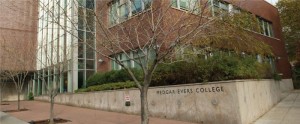Medgar Evers uses TOC to Stem Attrition
Math enrollments rise from 7 to 65.
Guest post by Professor Umesh Nagarkatte, Medgar Evers College, CUNY
 In urban colleges, student attrition due to absenteeism and failure has been a common problem. Attrition happens because students get bogged down by academic and non-academic issues. In 2002, three faculty members found that the Theory of Constraints (TOC) and its logic-based Thinking Processes (TP) tools can address both absenteeism and failure. They began with two weeks training in TOC and TP at Goldratt Institute, New Haven, CT, and the chair got departmental agreement for a new approach for Spring 2002.
In urban colleges, student attrition due to absenteeism and failure has been a common problem. Attrition happens because students get bogged down by academic and non-academic issues. In 2002, three faculty members found that the Theory of Constraints (TOC) and its logic-based Thinking Processes (TP) tools can address both absenteeism and failure. They began with two weeks training in TOC and TP at Goldratt Institute, New Haven, CT, and the chair got departmental agreement for a new approach for Spring 2002.
TOC asks three basic questions: What to change? What to change to? and How to cause the change? It uses the TP tools to answer these questions. Evaporating Cloud (necessity logic) helps resolve conflicts. Branch (sufficiency logic) helps to solve word problems and prove theorems as well as to see the (negative or positive) consequences of certain actions. Ambitious Target Tree or Prerequisite Tree (necessity logic) helps with word problems and curriculum development, lists obstacles, and develops action plans.
The effort in TOC and TP implementation has brought in seven federal grants totaling $3.8 million. The funds have supported activities to make students proactive by training in TOC/TP for FY advisors, counselors, and tutors, mainly STEM and English faculty and administrators, and in the use of TOC/TP in the development of curriculum, online resources and textbooks. The goal is to build a student safety net consisting of all stakeholders of the student success system. Training has resulted in policy changes, such as merging developmental courses in English and math. The grants have also provided drop-in tutoring, student summer research with faculty, student trips to regional and national conferences, and preparation for the GRE.
In the Department this has developed an environment that is conducive to student success. From 2000 to 2002 to now, enrollment in the BS Degree program in Mathematics rose from 7 to 29 to 65. The Department has graduated more than 45 math majors, of whom several are in graduate schools pursuing PhDs. Medgar Evers is the first institution that uses TOC/TP for undergraduates.
 Welcome to my blog. I also have a blog at the
Welcome to my blog. I also have a blog at the